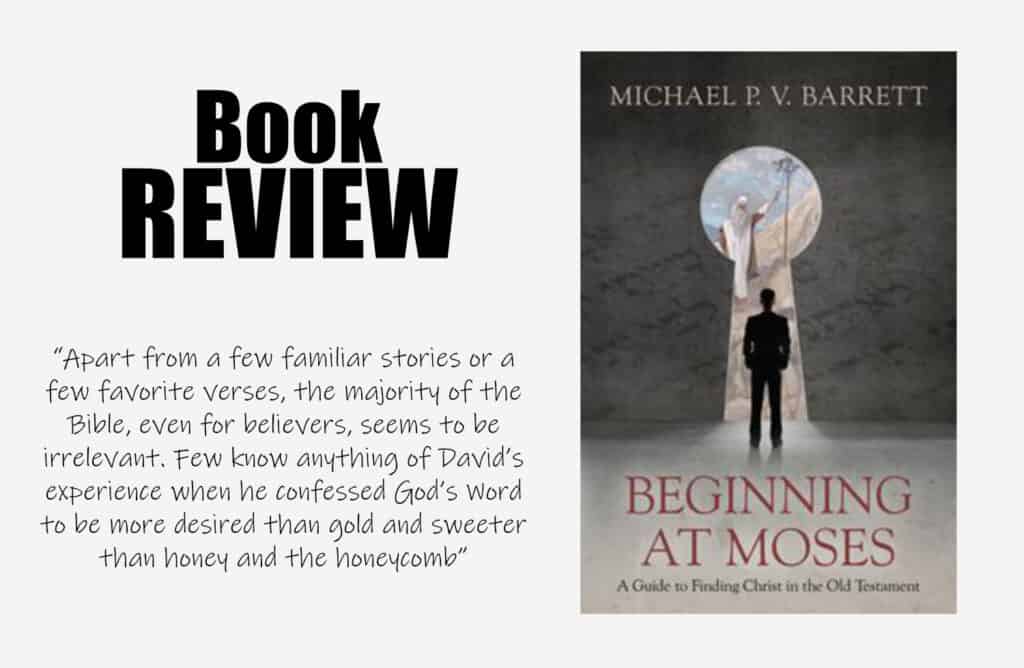Introduction
The Old Testament’s authority over the New Testament believer has been heavily debated since Christianity’s founding. Today, many churches view the Old Testament as a relic of the past and antithetical to the New Testament’s teaching. This paper will examine Christ’s use of the Old Testament Quotations to determine whether the Old Testament teaching on interpersonal and ministerial conduct is binding to the believer today.
What Christ Considered the Old Testament Scriptures
Before studying Christ’s use of the Old Testament, one must first establish what Christ referred to when teaching about interpersonal and ministerial conduct. Christ specifically referenced fourteen Old Testament books,[1] which easily places them in the category of Old Testament canon. What must be dealt with next is the status of those books which Christ does not specifically reference.
One clue into what Christ considered to be in the Old Testament Scriptures is his reference in Luke 24:44 to a 3-part canon consisting of “the Law of Moses and the Prophets and the Psalms.”[2] Extra-biblical evidence exists to support this division that Christ used. Jeshua ben Sirach, in 132 B.C., recalled his father, an original translator of the Masoretic Text, mentioning a 3-part canon consisting of “the Law itself, and the prophecies, and the rest of the books.[3]
Josephus in A.D. 100 also referenced a 3-part Old Testament canon consisting of the books of Moses, the books of the prophets, and the remaining 13 books, which contain hymns and precepts for mankind.[4] Josephus further limits the canon to 22 books that, while ordered differently, match the modern Protestant canon.[5]
Notably, Christ also mentions in Matthew 5:17 that he did not come to abolish the Law or prophets, but that everything in it would be accomplished. D. A. Carson notes:
For that is what “Law or the Prophets” here means: the Scriptures. The disjunctive “or” makes it clear that neither is to be abolished. The Jews of Jesus’ day could refer to the Scriptures as “the Law and the Prophets” (7:12; 11:13; 22:40; Luke 16:16; John 1:45; Acts 13:15; 28:23; Rom 3:21); “the Law …, the Prophets, and the Psalms” (Luke 24:44); or just “Law” (5:18; John 10:34; 12:34; 15:25; 1 Cor 14:21); the divisions were not yet stereotyped.[6]
As has been established, Christ viewed the Old Testament as binding upon himself. What must now be considered is whether Christ viewed these laws as binding upon those who follow him, primarily, the disciples who would lead the New Testament church, and by extension, the disciples in the church today.
Interpersonal Conduct: Relationships Between Believers
The first area of interpersonal conduct is in Matthew 18:15–20, where Jesus taught the disciples about how to handle a brother who sins against them. Jesus first established that mercy should be shown to a brother with a private confrontation but that if there is no repentance, to bring 2 or 3 witnesses to establish the charges against him. Christ pulled this directly from Deuteronomy 19:15 and applied it to his modern audience. While he adds instruction about the private confrontation of a brother, he still clearly viewed the Law’s writings as applicable to his audience.
Secondly, in Matthew 19:5, we find Jesus quoting Genesis 2:4 to teach about marriage’s sanctity. At the time, the Jewish people used Deuteronomy 24:1–4 as a justification for divorce, which we see the Pharisees doing at this moment. Not surprised by their use of Scripture to justify their sins, Christ quickly references creation as a superior determiner of teaching on marriage. D.A. Carson explains:
Jesus essentially appealed to the principle, “The more original, the weightier,” an accepted form of argument in Jewish exegesis (cf. Paul in Gal 3:15–18); and it is impossible to go further back than creation for the responsibilities of mankind. If marriage is grounded in creation, in the way God has made us, then it cannot be reduced to a merely covenantal relationship that breaks down when the covenantal promises are broken.[7]
Christs’ use of Genesis for matters of marriage is further confirmed as applying to the New Testament church by Paul in Ephesians 5:31, where Genesis 2:24 is used to admonish the Ephesian church to love their wives.
Lastly, in Matthew 22:39, Christ spoke about the love we must have for one another. This quote was taken from Leviticus 19:18, where Moses teaches that God’s people shall not seek vengeance against one another but love each other as themselves. In Christ’s day, this verse was limited by the Jewish people to apply only to the fellow Israelites.[8] Still, Christ reminded his people that the context of neighbors was meant to apply to all of mankind and that it still bears authority over and rightly teaches the church how to conduct itself (Luke 10:30–37).
Ministerial Conduct: Authority in Theology and Service
One of the most frequent circumstances where Jesus used Old Testament quotations is when the religious elites would confront him. The Pharisees were knowledgeable about the Old Testament Scriptures, and they viewed them as authoritative, which gave Christ an easy inroad to rebuke them. As will be shown, one of Christ’s primary complaints toward the Jewish leaders was their selective view of its authority over their lives.
The first reference that will be considered is in Matthew 19:13, where Christ, as a rebuke to the Pharisees, quoted Hosea 6:6. While the Pharisees prided themselves in following the letter of the Law in the Old Testament, they forgot the spirit of the written Law, causing Jesus to rebuke them as hypocrites.[9] Jesus saw that the Old Testament was still valid as an authority to ministry; his problem with the religious elite of the day was not their knowledge of Scripture, or lack thereof, nor of the Scripture itself, but with the way that they divided the teaching of Scripture, a subject later addressed specifically by Paul in 2 Timothy 2:15. Their ministry traded in the love of people for self-righteousness.
On another occasion, the Sadducees, who denied the resurrection, came to Jesus asking a question about the resurrection as an attempt to trap him into rejecting it. Jesus immediately appealed to the authority that rested in the Old Testament Scriptures by quoting Exodus 3:6. Jesus had an easy moment to teach on the resurrection in a way that contained new revelation. Still, instead, his use of Exodus 3:6 showed not only that Jesus viewed the Old Testament Scriptures as authoritative but that it also had all the information needed for the questions that the Sadducees required.
Following the discourse with the Sadducees, the Pharisees once again attempted to test Christ, asking him, “Teacher, which is the greatest commandment in the Law?” (Matt 22:36).[10] Rather than teach anything new, he quotes the Shema from Deuteronomy 6:5 and Leviticus 19:18. Again this shows that Jesus viewed the Law as authoritative not only to them but to the Disciples who were following him and observing this same teaching.
Limitations
Although Christ does view the Old Testament Scripture as authoritative to the believer’s life, some New Testament authors seem to contradict this (c.f. 1 Tim 1:8–10; John 1:17; Gal 2:16). Which parts of the Law still apply to believers today? The Westminster Confession of Faith separated the Law into three categories: a moral law, a civil law, and ceremonial Law.[11] The moral laws are those laws that are perpetual and given to man as a “perfect rule of righteousness.”[12] and are still binding to every believer today. As their name implies, the civil laws concern the Israelite nation’s governing and speak specifically to the people’s day-to-day inter-relations. The ceremonial laws are those having to do primarily with feasts and sacrifice. As the author of Hebrews states, these laws no longer apply to the modern believer, for they have been completed in Christ. “…He does away with the first in order to establish the second. And by that will we have been sanctified through the offering of the body of Jesus Christ once for all” (Heb 10:9b–10).
Conclusion
Though many modern churches downplay the significance of the Old Testament to the life of Christians, Jesus viewed them as authoritative in his own life, the life of his contemporaries, and in the lives of the future leaders of the New Testament church. Jesus used the Old Testament as a tool in his teaching, a means to rebuke those in the church, and as a method of authenticating his teaching as being from God. Christ’s use of the Old Testament Scriptures should be an example of how the New Testament church and believers should use the Old Testament in our lives and ministry.
[1] Don Stewart, “What was Jesus’ View of the Old Testament?,” Blue Letter Bible, December 14, 2020. https://www.blueletterbible.org/Comm/stewart_don/faq/bible-authoritative-word/question17-jesus-view-of-the-old-testament.cfm; The books cited are: Genesis, Exodus, Deuteronomy, 1 Samuel, 1 Kings, Psalms, Isaiah, Daniel, Hosea, Jonah, Zechariah, and Malachi.
[2] Eugene H. Merrill, Mark Rooker, and Michael A. Grisanti, The World and the Word: An Introduction to the Old Testament (Nashville, TN: B&H Academic, 2011), Ch 6.
[3] Ibid.
[4] Ibid.
[5] Robert Gonzales, “Old Testament Introduction Part 2: The Composition and Transmission of the Old Testament” (video of lecture, Reformed Baptist Seminary), accessed December 14, 2020, https://rbs.populiweb.com/router/courseofferings/9894379/lessons/10011721; The Protestant canon contains 39 Old Testament books compared to the 22 mentioned by Josephus. The Protestant canon splits several of the books mentioned by Josephus into multiple books such as the books of Samuel, Kings, and Ezra-Nemeiah. Also worth noting is that the minor prophets were generally referred to as a single book.
[6] Donald. Carson, “Matthew,” in The Expositor’s Bible Commentary: Matthew, Mark, Luke, ed. Frank E. Gaebelein, vol. 8 (Grand Rapids, MI: Zondervan Publishing House, 1984), 142.
[7] Ibid, 412.
[8] Robert Jamieson, A. R. Fausset, and David Brown, Commentary Critical and Explanatory on the Whole Bible, vol. 1 (Oak Harbor, WA: Logos Research Systems, Inc., 1997), 87.
[9] Carson, “Matthew,” in The Expositor’s Bible Commentary: Matthew, Mark, Luke, ed., 225.
[10] All Scripture citations in this work are taken from The Holy Bible: English Standard Version (Wheaton: Standard Bible Society, 2001) unless otherwise noted.
[11] Westminster Assembly, “The Westminster Confession of Faith,” A Puritan’s Mind, December 14, 2020. https://www.apuritansmind.com/westminster-standards/chapter-19/
[12] Ibid.




You are truly a good webmaster. The site loading velocity is incredible.
It sort of feels that you’re doing any unique trick.
Furthermore, the contents are masterwork. you’ve done a wonderful job in this matter!
Similar here: tani sklep and also here: Dyskont online
Hey there! Do you know if they make any plugins to help with Search Engine Optimization? I’m trying to get my blog to rank for some targeted keywords
but I’m not seeing very good gains. If you know of any please share.
Appreciate it! You can read similar art here: Sklep internetowy
Howdy! Do you know if they make any plugins to assist with SEO?
I’m trying to get my blog to rank for some targeted keywords but
I’m not seeing very good gains. If you know of any please share.
Kudos! You can read similar article here: Dobry sklep
Hey! Do you know if they make any plugins to help with SEO?
I’m trying to get my blog to rank for some targeted keywords but I’m not seeing very good results.
If you know of any please share. Kudos! I saw
similar text here: GSA Verified List
Hello! Do you know if they make any plugins to assist with SEO?
I’m trying to get my website to rank for some targeted keywords
but I’m not seeing very good results. If you know
of any please share. Cheers! I saw similar text here:
GSA List
Hi there! Do you know if they make any plugins to assist with Search Engine Optimization? I’m trying to
get my site to rank for some targeted keywords but I’m
not seeing very good gains. If you know of any please share.
Appreciate it! You can read similar text here: Backlink Building
[url=http://synthroidx.com/]synthroid 137 coupon[/url]
Wow, marvelous blog structure! How long have you ever
been blogging for? you made blogging look easy. The entire look of your
web site is fantastic, let alone the content material!
You can see similar here e-commerce
Wow, marvelous weblog layout! How long have you ever
been running a blog for? you make blogging look easy. The full glance of your website is
magnificent, as neatly as the content material!
I saw similar here prev next and that was wrote by Julius01.
Wow, amazing blog format! How long have you been running a blog for?
you make running a blog look easy. The total glance of your web site is wonderful,
let alone the content material! I read similar here prev next
and that was wrote by Julio84.
Wow, superb weblog layout! How long have you ever been running a
blog for? you made running a blog look easy.
The full look of your website is great, let alone the content material!
You can read similar here prev next and that was wrote by Lenard95.